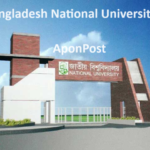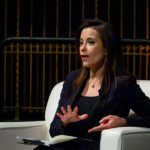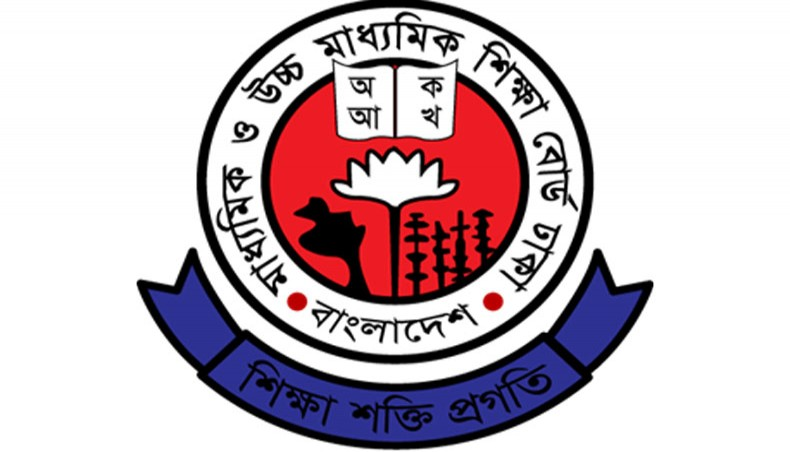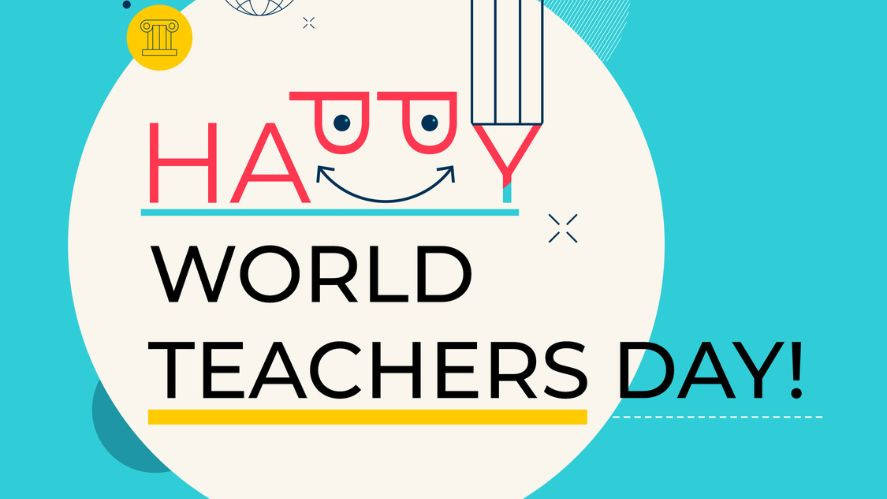The Bangladesh Education Board is the government body responsible for overseeing and regulating the education system in Bangladesh. It is responsible for managing and administering examinations, setting curricula, and ensuring the quality of education across the country. The Bangladesh Education Board is under the Ministry of Education and operates through multiple boards, including the Primary Education Board, Secondary Education Board, and Higher Secondary Education Board, which are responsible for primary, secondary, and higher secondary education respectively.
The functions of the Bangladesh Education Board include:
Conducting examinations: The Education Board is responsible for conducting examinations for various levels of education, including the Primary School Certificate (PSC), Junior School Certificate (JSC), Secondary School Certificate (SSC), Higher Secondary Certificate (HSC), and others. This includes setting exam schedules, preparing question papers, managing exam centers, and publishing results.
Curriculum development: The Education Board is responsible for developing and updating the curriculum for different levels of education in Bangladesh. This includes setting syllabuses, textbooks, and instructional materials, and ensuring that they are in line with national education policy and international standards.
Quality assurance: The Education Board is responsible for monitoring and ensuring the quality of education across different educational institutions in Bangladesh. This includes setting standards for teachers, monitoring teaching practices, and evaluating the performance of educational institutions.
Policy formulation: The Education Board participates in the formulation of education policies and plans at the national level. This includes providing inputs on issues related to curriculum development, examination systems, teacher training, and other aspects of the education system.
Teacher training and professional development: The Education Board is involved in the training and professional development of teachers in Bangladesh. This includes organizing teacher training programs, workshops, and seminars to enhance the skills and competencies of teachers.
Research and development: The Education Board conducts research and development activities to improve the education system in Bangladesh. This includes conducting studies on various aspects of education, identifying challenges, and proposing solutions to address them.
List of Education Board in Bangladesh
The Bangladesh Education Board plays a crucial role in regulating, managing, and improving the education system in Bangladesh, with a focus on ensuring quality education for all students in the country.
Bangladesh has several education boards responsible for conducting examinations and managing educational affairs in different regions of the country. As of my knowledge cutoff date in September 2021, the following is a list of education boards in Bangladesh:
- Board of Intermediate and Secondary Education, Dhaka
- Board of Intermediate and Secondary Education, Chittagong
- Board of Intermediate and Secondary Education, Rajshahi
- Board of Intermediate and Secondary Education, Jessore
- Board of Intermediate and Secondary Education, Comilla
- Board of Intermediate and Secondary Education, Barisal
- Board of Intermediate and Secondary Education, Sylhet
- Board of Intermediate and Secondary Education, Dinajpur
- Board of Intermediate and Secondary Education, Mymensingh
- Madrasah Education Board, Dhaka
- Technical Education Board, Dhaka
Each of these education boards is responsible for conducting examinations for secondary and higher secondary levels, such as the Secondary School Certificate (SSC), Higher Secondary Certificate (HSC), and their equivalent examinations. They are also responsible for curriculum development, syllabus approval, teacher training, and other educational affairs within their respective regions.
It’s important to note that the Madrasah Education Board in Dhaka is specifically responsible for conducting examinations for students studying in madrasahs (Islamic educational institutions) and the Technical Education Board in Dhaka is responsible for conducting examinations for students studying in technical and vocational education and training (TVET) institutions.
Higher Secondary Certificate (HSC) Examination by Bangladesh Education Board
The Higher Secondary Certificate (HSC) Examination is a crucial milestone in the academic journey of students in Bangladesh. It is a nationwide examination that assesses the knowledge and skills of students who have completed their secondary education and are on the cusp of entering higher education or joining the workforce. Over the years, the HSC examination has evolved and faced various challenges, but it has also achieved significant successes in shaping the education landscape in Bangladesh.
The HSC examination is conducted by the Bangladesh Education Board, specifically the Higher Secondary Education Board. It typically takes place in two phases: the HSC Alim examination for students in the Islamic studies stream, and the HSC examination for students in the general education stream. The examination covers various subjects, including Science, Arts, Commerce, and Vocational studies, and is considered a gateway for students to pursue higher education in universities or professional institutions.
One of the key challenges faced by the HSC examination in Bangladesh is the sheer number of examinees. With a large population and a high enrollment rate in secondary education, the number of HSC examinees has been steadily increasing, leading to logistical challenges in conducting the examination smoothly. Managing exam centers, preparing question papers, ensuring security, and publishing results for millions of students across the country is a herculean task that requires meticulous planning and execution.
Another challenge is ensuring the integrity and fairness of the examination process. Like in many other countries, Bangladesh has faced issues related to cheating, question paper leaks, and other malpractices in the HSC examination. These issues have raised concerns about the credibility and reliability of the examination results, and the authorities have been taking measures to tackle them, including the use of advanced technology, increased security measures, and strict monitoring to maintain the integrity of the examination process.
Despite these challenges, the HSC examination in Bangladesh has also achieved notable successes. One of the major achievements is the improvement in pass rates and overall results over the years. The government and education authorities have been implementing various measures to enhance the quality of education, including curriculum reforms, teacher training, and infrastructure development, which have contributed to better performance in the HSC examination. Moreover, the examination has provided a platform for students to showcase their knowledge and skills, and has been instrumental in determining their eligibility for higher education or employment opportunities.
The HSC examination has also played a significant role in fostering healthy competition among students, motivating them to strive for excellence and achieve their academic goals. It has encouraged students to pursue higher education in diverse fields, including science, arts, commerce, and vocational studies, and has opened up opportunities for them to specialize in their chosen areas of interest. The examination has also contributed to the growth of private coaching centers, which provide additional support to students in preparing for the HSC examination, and has created a competitive educational ecosystem in Bangladesh.
Furthermore, the HSC examination has served as a benchmark for evaluating the performance of educational institutions in Bangladesh. The results of the examination are used to rank schools and colleges, and the performance of students in the examination is often considered an indicator of the quality of education provided by these institutions. This has encouraged educational institutions to focus on improving their teaching standards, infrastructure, and resources to enhance the performance of their students in the HSC examination.
In recent years, the Bangladesh Education Board has been taking steps to further improve the HSC examination process. This includes the introduction of technology-driven measures such as digital question papers, online registration, and result publication, which have helped streamline the examination process and reduce the scope for malpractices. The authorities have also been working towards making the examination more inclusive, with special provisions for students with disabilities and other marginalized groups.
Alim Examination by Madrasah Education Board
The Alim Examination is a significant milestone for students pursuing Islamic studies in Bangladesh. It is a nationwide examination conducted by the Bangladesh Education Board, specifically the Madrasah Education Board, to assess the knowledge and skills of students who have completed their Alim course, which is equivalent to the Higher Secondary Certificate (HSC) examination in the general education stream. The Alim Examination has been instrumental in empowering Islamic studies education in Bangladesh and plays a vital role in shaping the academic landscape of the country.
Islamic studies hold a prominent place in the educational system of Bangladesh, which has a significant Muslim population. The Alim Examination is designed to evaluate the knowledge of students in Islamic studies, including the Quran, Hadith (sayings and actions of Prophet Muhammad), Fiqh (Islamic jurisprudence), and other related subjects. It is a comprehensive examination that assesses the students’ understanding of Islamic teachings, their ability to apply them in real-life situations, and their knowledge of the historical, cultural, and social aspects of Islam.
One of the key successes of the Alim Examination is the promotion of Islamic studies education in Bangladesh. The examination has helped to create a standardized curriculum, teaching materials, and assessment methods for Islamic studies, which have contributed to the development of a structured and organized system of education in this field. It has encouraged students to pursue Islamic studies as a serious academic discipline and has provided them with a platform to showcase their knowledge and skills in this area.
The Alim Examination has also played a significant role in promoting Islamic values, ethics, and moral teachings among students. The examination not only tests the students’ knowledge of Islamic teachings but also emphasizes the application of these teachings in their daily lives. It encourages students to develop a deep understanding of Islam and its principles, which in turn helps them to become responsible citizens who are well-versed in the teachings of Islam and can contribute positively to society.
Moreover, the Alim Examination has fostered a sense of community among students pursuing Islamic studies. It provides a platform for students to interact with fellow students from different madrasahs (Islamic educational institutions) across the country, exchange ideas, and learn from each other. It promotes a healthy competition among students, motivating them to excel in their studies and strive for academic excellence.
The Alim Examination has also been a significant factor in determining the eligibility of students for higher education in Islamic studies. Students who perform well in the examination can pursue further studies in universities, Islamic universities, or specialized institutions to further their knowledge and skills in Islamic studies. It has opened up opportunities for students to specialize in their areas of interest, such as Tafsir (interpretation of the Quran), Hadith, Fiqh, Islamic history, and Islamic economics, among others.
Despite its successes, the Alim Examination also faces certain challenges. One of the challenges is the need to maintain the quality and standard of Islamic studies education. There is a continuous effort to revise and update the curriculum, teaching materials, and assessment methods to ensure that the Alim Examination reflects the contemporary needs and challenges of the Muslim community in Bangladesh.
Another challenge is the need to strike a balance between traditional and modern approaches to Islamic studies education. While the Alim Examination emphasizes the traditional Islamic teachings and values, there is also a growing demand for incorporating modern disciplines such as science, technology, economics, and management into the curriculum to ensure that students are equipped with relevant skills for the modern world.
Bangladesh Technical Education Board
The Technical Education Board in Bangladesh is responsible for overseeing and managing technical and vocational education and training (TVET) at the secondary and higher secondary levels. It is one of the important education boards in Bangladesh that focuses on technical and vocational education to develop a skilled workforce that can contribute to the country’s economic growth and development.
The Technical Education Board operates under the Ministry of Education and plays a crucial role in the development, implementation, and monitoring of technical education programs in Bangladesh. It works in close collaboration with various stakeholders, including educational institutions, industry partners, employers, and other relevant organizations to ensure that the technical education and training offered are aligned with the needs of the job market and industry demands.
The main functions of the Technical Education Board include:
Curriculum Development: The Technical Education Board is responsible for developing and updating the curriculum for technical and vocational education programs at the secondary and higher secondary levels. This includes designing course materials, syllabi, and assessment methods that are relevant to the needs of the job market and meet international standards.
Examination Conducting: The Technical Education Board conducts examinations for technical and vocational education programs, such as the Secondary Vocational Examination (SVE) and the Higher Secondary Vocational Examination (HSVE), which are equivalent to the Secondary School Certificate (SSC) and Higher Secondary Certificate (HSC) examinations in the general education stream.
Accreditation and Certification: The Technical Education Board is responsible for accrediting technical and vocational education institutions and certifying students who successfully complete their TVET programs. This ensures that the quality of education and training meets the required standards and that students are equipped with the necessary skills and knowledge for the job market.
Teacher Training and Professional Development: The Technical Education Board provides training and professional development opportunities for TVET teachers to enhance their teaching skills and update their knowledge in their respective fields. This helps in ensuring that the teachers are well-equipped to deliver high-quality technical education and training to the students.
Industry Linkages: The Technical Education Board works closely with industry partners and employers to establish strong linkages between the TVET institutions and the job market. This includes developing industry-relevant curriculum, organizing industry visits and internships for students, and promoting industry engagement in the development and delivery of TVET programs.
Monitoring and Evaluation: The Technical Education Board monitors and evaluates the quality and effectiveness of TVET programs through various mechanisms, such as inspections, assessments, and feedback from stakeholders. This helps in identifying areas for improvement and ensuring that the TVET programs are meeting their objectives.
The Technical Education Board in Bangladesh plays a crucial role in preparing a skilled workforce that meets the demands of the job market and contributes to the economic development of the country. It provides opportunities for students to acquire technical and vocational skills, enhances their employability, and promotes lifelong learning.












